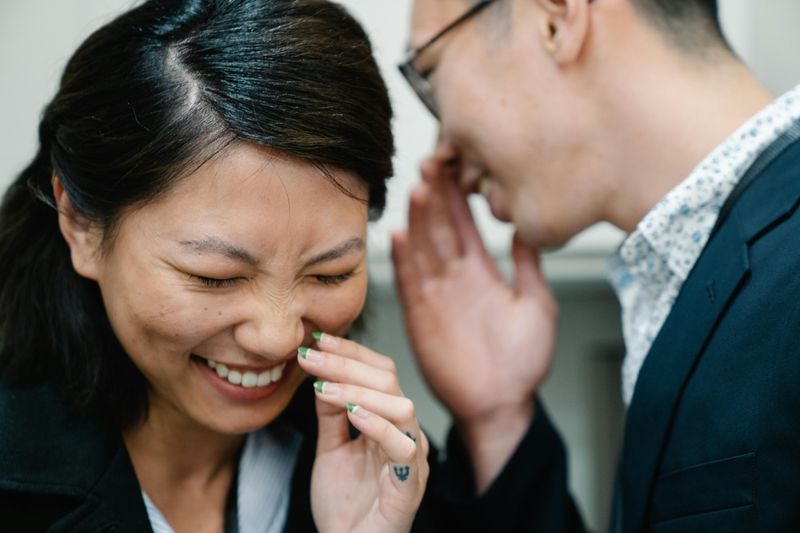9 Habits That Make You Seem Insecure (Even if You’re Not)

You might be the most capable person in the room, but if your habits tell a different story, people may assume you’re insecure. Often, it’s not about how confident you feel—it’s about how confident you appear. The little things you do (or don’t do) can quietly signal doubt, even when you’re trying to be polite, modest, or agreeable.
1. Constantly Seeking Validation

Questions like “Do you think that sounded okay?” or “Should I change this?” may seem harmless, but they tell others you don’t trust your own judgment. This constant need for reassurance can make people question your competence, even when you’re more than capable.
Relying on others to affirm your decisions can also become emotionally exhausting—for both you and them. While occasional feedback is normal, habitual validation-seeking suggests that you doubt your own value. Confidence is built when you learn to back your choices, even without external applause.
2. Overexplaining Your Choices

People notice when you launch into a detailed defense of simple decisions. Whether it’s explaining why you ordered takeout again or justifying your vacation plans, overexplaining gives the impression that you’re anticipating judgment.
This behavior is often rooted in a fear of disapproval. But constantly trying to preempt criticism can make you seem unsure and overly concerned with how others perceive you. Trusting that your choices are valid—without needing to over-clarify—sends a much stronger signal of quiet confidence.
3. Apologizing Too Often

Saying “sorry” for things you didn’t do—or can’t control—can undermine your presence. If someone else runs late or makes a mistake and you still apologize, it suggests you’re afraid of being a burden or causing friction.
While being considerate is admirable, excessive apologizing makes it hard for people to see you as someone with firm self-assurance. Swap unnecessary apologies with expressions of gratitude, like “Thanks for your patience.” It not only shifts the tone but reinforces a sense of poise and balance.
4. Avoiding Eye Contact

Glancing away during conversations or keeping your eyes down can give off the impression that you’re unsure of yourself. Even if you’re simply shy or deep in thought, others may interpret it as a lack of conviction or openness.
Maintaining eye contact—without turning it into a stare-down—builds trust and shows you’re present and engaged. It doesn’t just help others feel connected to you; it reinforces your own confidence and sense of authority in a subtle but powerful way.
5. Downplaying Accomplishments

Brushing off praise with “Oh, it was nothing” or “I just got lucky” might seem humble, but it actually makes you appear unsure of your worth. Minimizing your achievements sends the message that you don’t believe you’ve earned them.
True humility doesn’t require shrinking yourself. A simple “Thank you” is often enough. Acknowledging your wins without bragging shows self-awareness and quiet confidence—two traits that command respect and admiration from others.
6. Mimicking Others to Fit In

Changing how you speak, dress, or even think just to blend into a group can backfire. It may help you avoid standing out in the short term, but long term, it tells others that you’re unsure of your own identity.
Trying too hard to match someone else’s vibe can feel inauthentic, and people often pick up on that. The most confident people embrace their uniqueness—even if it means not everyone will approve. Being yourself, consistently, is the surest way to earn genuine connection and respect.
7. Overcompensating With Bragging

Name-dropping, constantly highlighting your accomplishments, or dominating conversations with your resume may mask insecurity rather than display confidence. It can come across as trying too hard to prove your value.
People who feel secure in themselves let their actions speak. They don’t need to lead with their achievements to feel worthy. Letting go of the need to impress everyone allows you to build more authentic relationships—and shows that your self-worth isn’t tied to external validation.
8. Obsessing Over Social Media Likes and Comments

Letting your mood be dictated by how many likes your post gets—or deleting something that didn’t perform well—suggests that you’re measuring your value through digital applause. It’s a slippery slope to self-doubt.
Social media should enhance your life, not define your self-worth. Confident people share because they want to express themselves—not because they crave validation. When you detach from the numbers and focus on real-life fulfillment, you naturally project more grounded, inner confidence.
9. Fear of Saying “No”

Always saying “yes,” even when you don’t want to, reflects a fear of disappointing others. This habit often comes from a place of wanting to be liked or avoid conflict—but it can leave you feeling resentful and burnt out.
Setting boundaries isn’t selfish—it’s healthy. People respect those who can communicate their limits clearly and kindly. Learning to say “no” when needed helps you prioritize your well-being and shows others that your time and energy are valuable.

Comments
Loading…